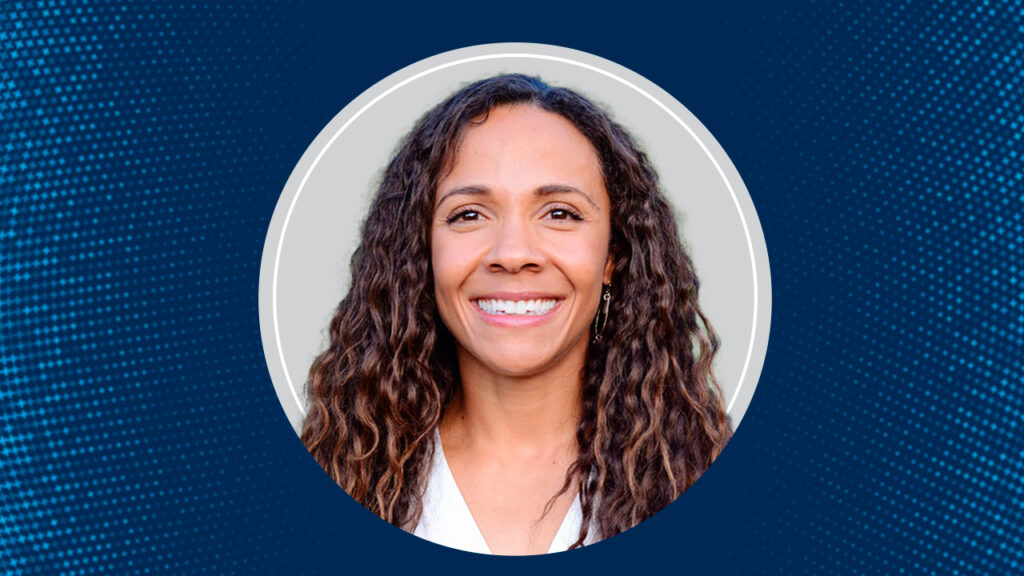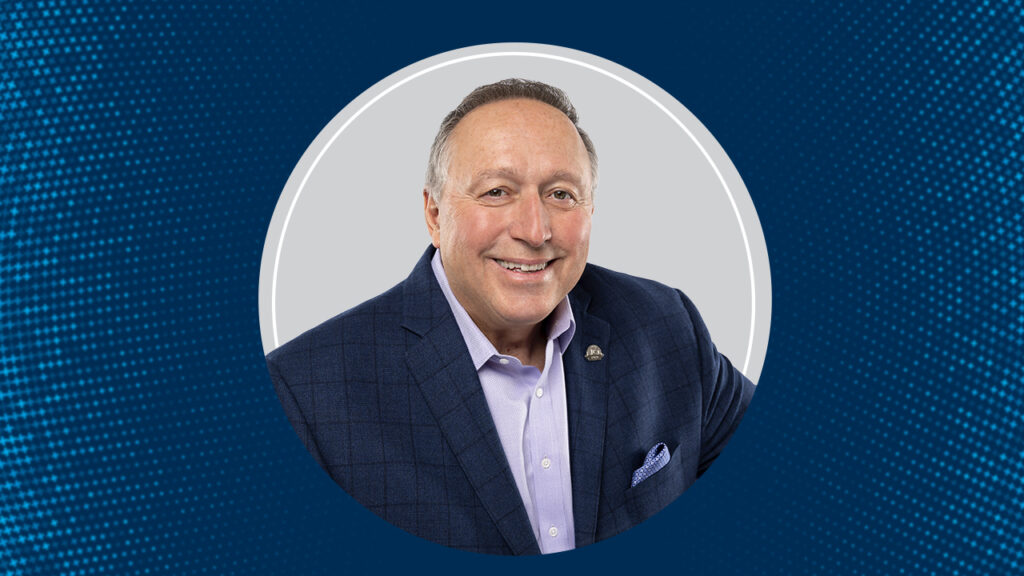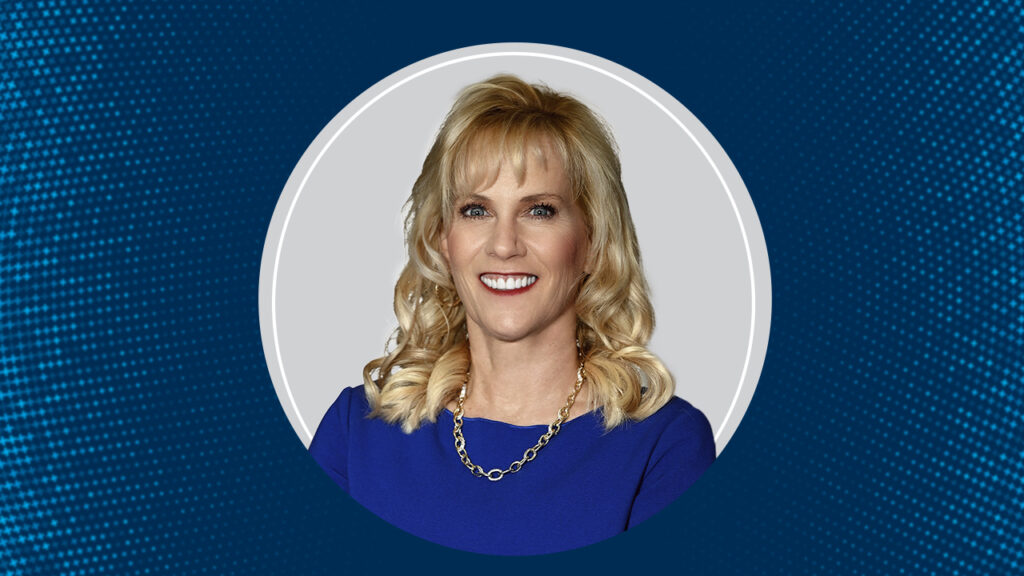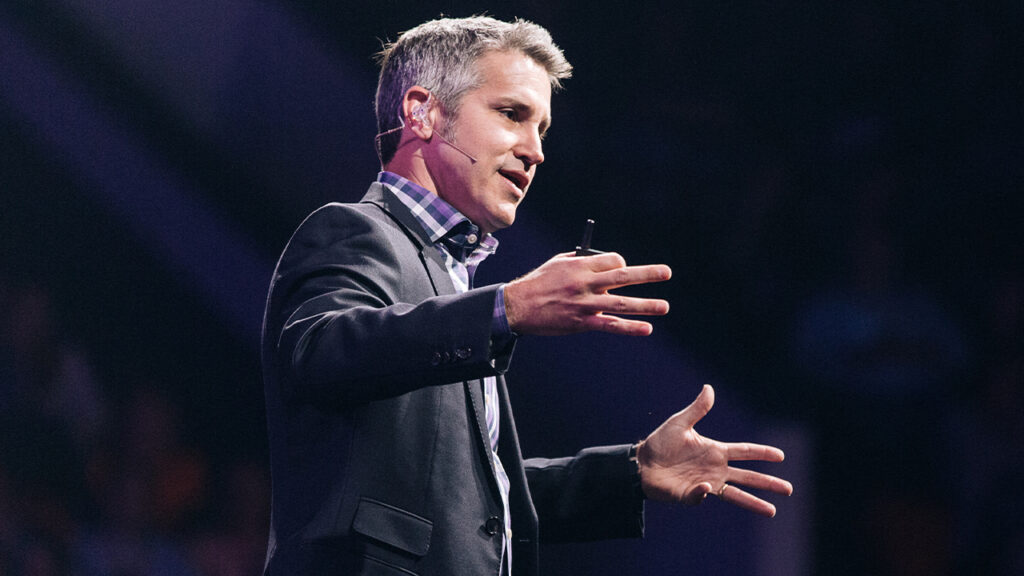Buffini fuses old, new approaches for real estate success

Referrals, not rushed sales, underscore Brian Buffini’s real estate success.
Rather than focus on transactions, the California-based sales coach and motivational speaker encourages real estate agents to forge relationships with clients, to develop ongoing connections aimed at attracting other buyers.
“It’s an effective way of doing things,” says Buffini, who has trained 3 million business professionals in 37 countries since founding the company that would become Buffini & Co. 20 years ago. He currently coaches more than 10,000 individuals nationwide through classroom and online training programs.
More than 1,350 of those people packed the Fort Worth Convention Center on Oct. 14-15 as part of Buffini’s 2015 Success Tour. Buffini found a few minutes to explain his approach in an interview with Fort Worth Business.
Motivational speakers are nothing new, but motivational speakers specializing in real estate are a rarer breed. What led you to this specialty?
I was a real estate agent myself. Real estate is a fabulous business, but very tough. You don’t necessarily have a boss. You have colleagues, but you’re not really part of a team. And the training you get is not training you need to run a successful business. Running a successful business is very difficult. In addition to the fact that you’re self-employed, it’s a tough place to be.
Was that your experience?
Yes, exactly. I got my license and they said, “Here’s your desk, your phone. Knock yourself out.” I had to figure it out. A year later, I was a successful agent by applying myself to old-world principles of serving the customer, generating referrals. I found myself being in demand.
Why were you successful?
So many people identified with it. I volunteered my time at different conferences to do this. I didn’t see this becoming what it has become, though.
What qualifies you to be a real estate trainer?
There are a lot of people on the training side of real estate that never even sold. I think customers would want someone who’s experienced in training, and that is me.
So many trainers haven’t been in the sales trenches, so to speak.
Yes, but I’m excited by my two careers: nine years as a real estate agent and also as trainer in 37 countries.
What you’re doing obviously works. What aren’t others following the same approach?
I guess for competition’s sake, people come up with their own philosophy. Believe it or not, a lot of teachers say the way to grow your business is to generate customers online and to get online leads.
In the training space, a lot of trainers never sold real estate. They come from a tech space. With Zillow and Trulia [online real estate listings services], you don’t have to be in the real estate business to go back and look at houses. You’re able to see every house you want and check them out. You don’t even need to talk to a Realtor.
People think we’re going the way of travel agents or taxis.
Are they wrong in that perception?
I think technology is fantastic. What we see today is 92 percent of people start their [home] searches online. Of those people, in excess of 90 percent, after they look at homes online, go and get a referral to an agent to get help. If you look for a house, you look online. Then when it’s time to get serious, you get a professional.
It’s a modern tool, somewhere to begin.
Yes, but once you’re in that mode, you also talk to people. The way we look for a home, you engage in conversations just like you did before.
Some things technology doesn’t make obsolete.
Some things technology doesn’t make obsolete.
Yes. Do you have kids?
No.
Well, I’m not finding a babysitter online. I’m not bringing Charlie the Ax Murderer into my home.
What’s your take on the real estate industry? Is it strengthening? Or do you foresee another downturn?
The market is very solid. It goes the way the economy goes. Employment and unemployment are two very big issues for real estate.
Nationally, we know there’s a shortage of inventory. The U.S. economy will need to build 16 million homes and condos in the next 10 years just to keep up.
We will continue to have a housing shortage for some time – in Texas, even more so. You guys do a great job of luring California companies here. The state income tax is a big draw for a lot of folks. More and more, you see more and more people migrate to the state of Texas all the time. In my travels in major markets, Dallas, especially, is going to be in a housing crunch for quite some time.
Just because of the inventory issue?
Yes, they’re not building fast enough to keep up with population growth and state migration to the state of Texas from people coming here.
So that means more agents?
And more and more buyers.
Do people at your conferences ask about that?
Yes. For the event in Fort Worth, we talk about our system in how to generate referrals. We have a system to create our own inventory. That’s housing stock or houses on the market. The average professional does not know the state of the housing market. And there are many homeowners who don’t know how to commodify their existing homes right now. Those who do are reluctant to put their homes on the market.
As a motivational speaker, you obviously place value on attitude and ability. But how does even a confident, enterprising individual succeed in a real estate market whose strength or weakness is out of their control?
I think what happens is when you’re into real estate, there are many voices clamoring for your attention. Many people say here’s how you should do it. The average real estate agent in business sells less than two homes a year. That’s for a new real estate agent. I have a program called Peak Producers where people walk through a 12-week course. The course costs $395. It’s a 12-week, video-based training program that includes all the materials you need. More than 40,000 people take this course.
What’s unique to this year’s conference? Anything new?
I see agents drift toward depending on technology to generate leads, but that does not generate a quality of leads. A referral from a past customer is superior to a [prospective client] who might have put their name in an address to get a free goody. It’s very rare to sit back in my hammock and have leads come to my email and see these leads turn into money. What we teach requires a lot of work: Go out and see clients, take them to lunch, a coffee, provide resources for them. It’s a lot of work.
What’s old is new.
Yes. The principles don’t change; the tactics do. It’s building a relationship using the latest market approaches.
Who’s your audience?
Typically, my audience is 40 percent people who are members in a coaching system coming back, another 40 percent who are here for the very first time, and the last 20 percent of people who are new to the business.






